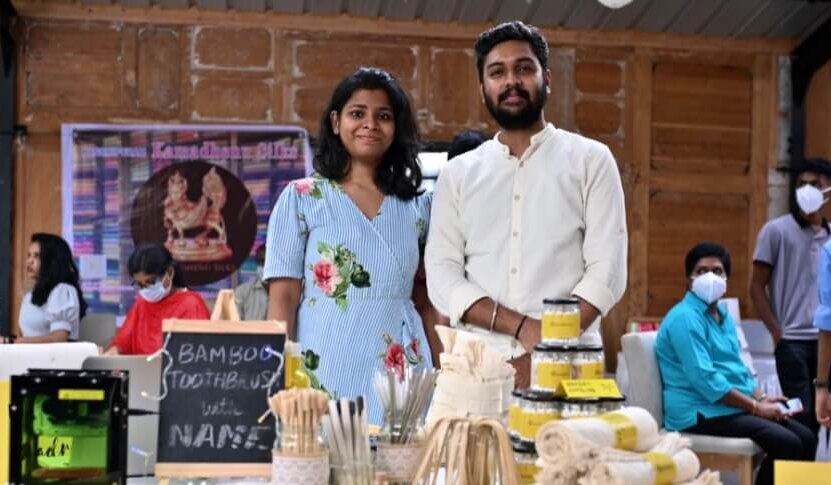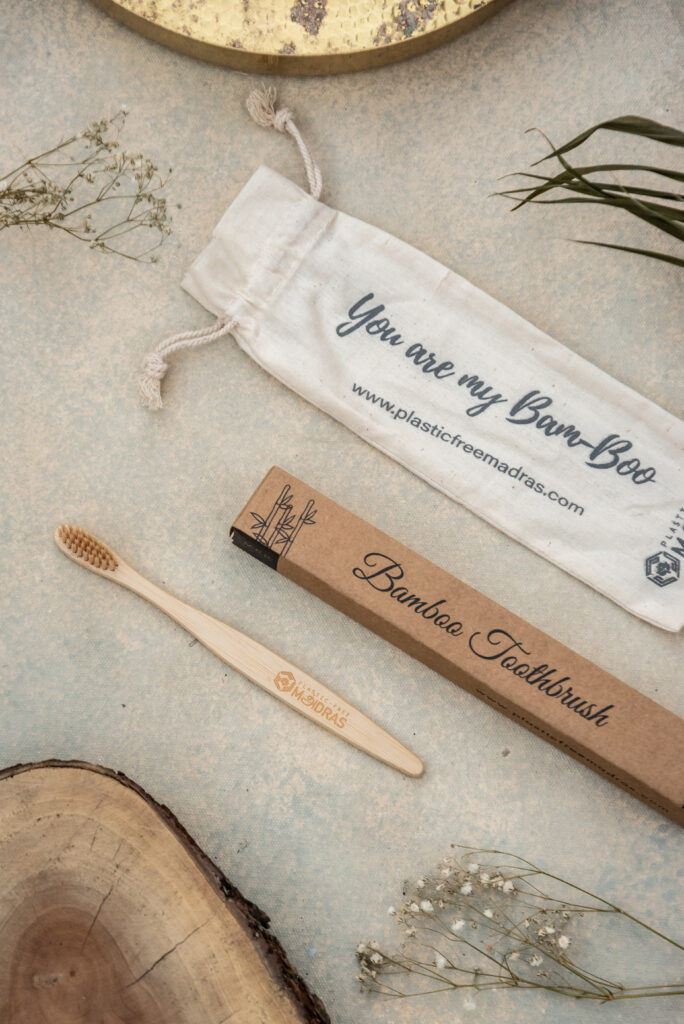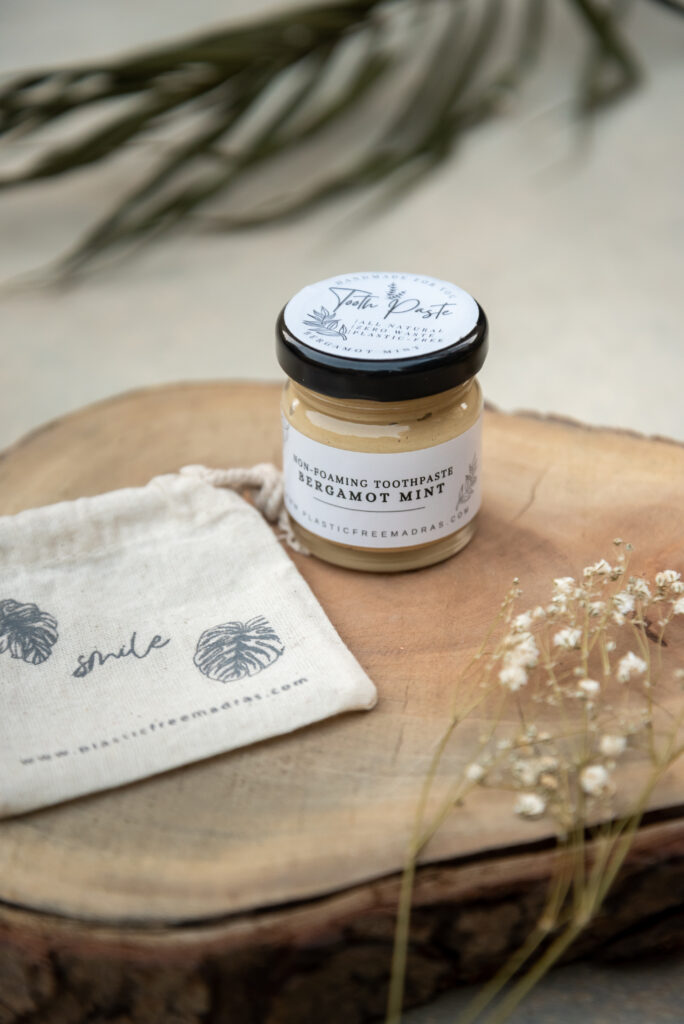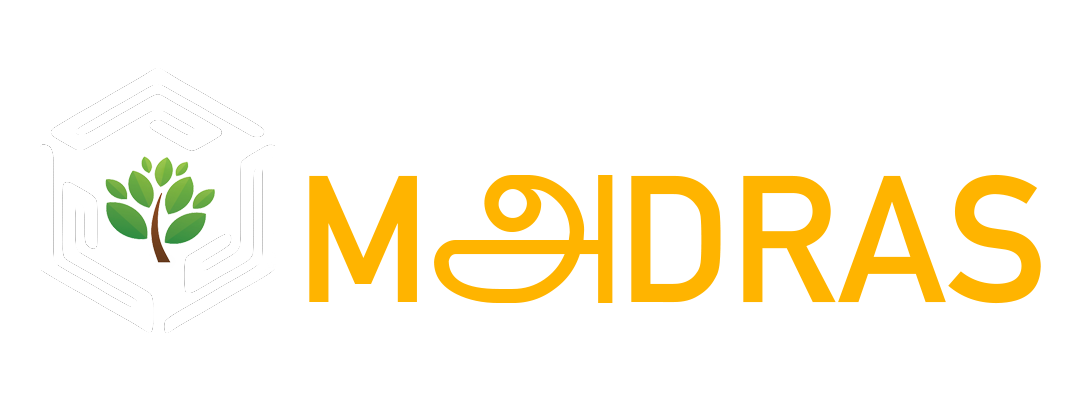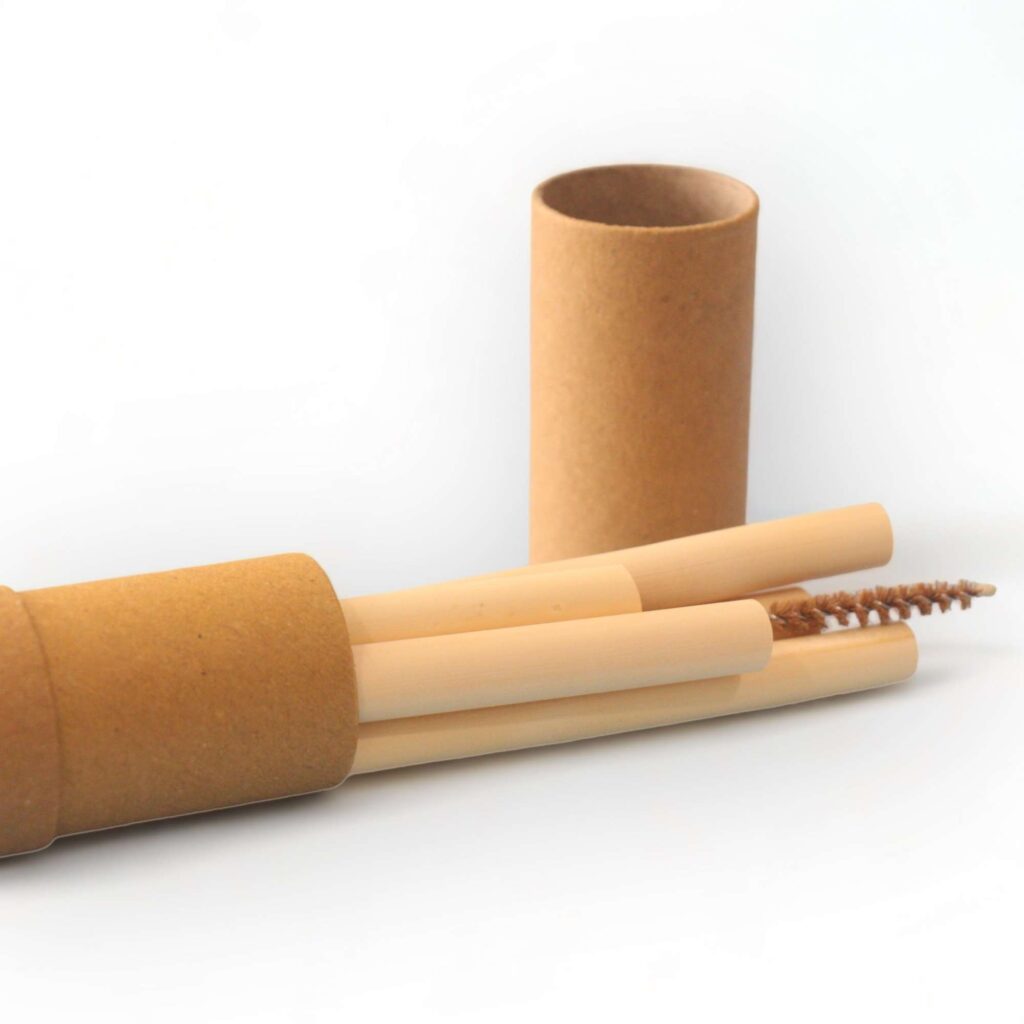“The first ever toothbrush you used is still on Earth,” Divya states as the small gathering around her stall stares back dumb-struck in the realisation of that statement. “I’ll buy one bamboo toothbrush for me and one as a gift for my friend,” a voice from the group breaks the silence. At that instant, Pradeep and Divya turn on their portable engraving machine. There is a low hum. Almost instantly, two names were custom etched on the two toothbrushes.
“Chennai is a city,” Pradeep says. “Madras is an emotion,” Divya completes as they both look at each other and grin. While everyone was busy complaining about all the plastic waste on the beaches, Pradeep Sekar and Divya Dakshana started a consultancy—Plastic Free Madras— in 2018. They believed that they could use the emotional bond that Chennaiites have towards their city to advocate against single-use plastic.
The photographers turned social entrepreneurs are the power couple that the city needs. They see opportunities where most others see disadvantages. For instance, plastic toothbrushes are cheaper and more common than bamboo brushes. The simple act of customising these toothbrushes and selling them as lifestyle gifts at pop-ups made them an instant success—while enabling them to educate the crowd on the perils of using single-use plastic, of course.
“We’ve been photographers for the past nine years. Honestly, we’ve had a lot of time to spare between shoots,” confesses Pradeep. As a result, their quaint photography studio in Kilpauk now hosts T.A.P, an affordable coworking space, and the Existential Design Studio, a website design company. Today, all the businesses housed in the building work as one system powering the couple’s passion project—Plastic Free Madras.
The e-commerce company did not always sell sustainable lifestyle products. The couple started the business as an advocacy firm. Before the pandemic, they would partner with institutions and businesses and spread awareness about alternatives to our everyday single-use plastic items.
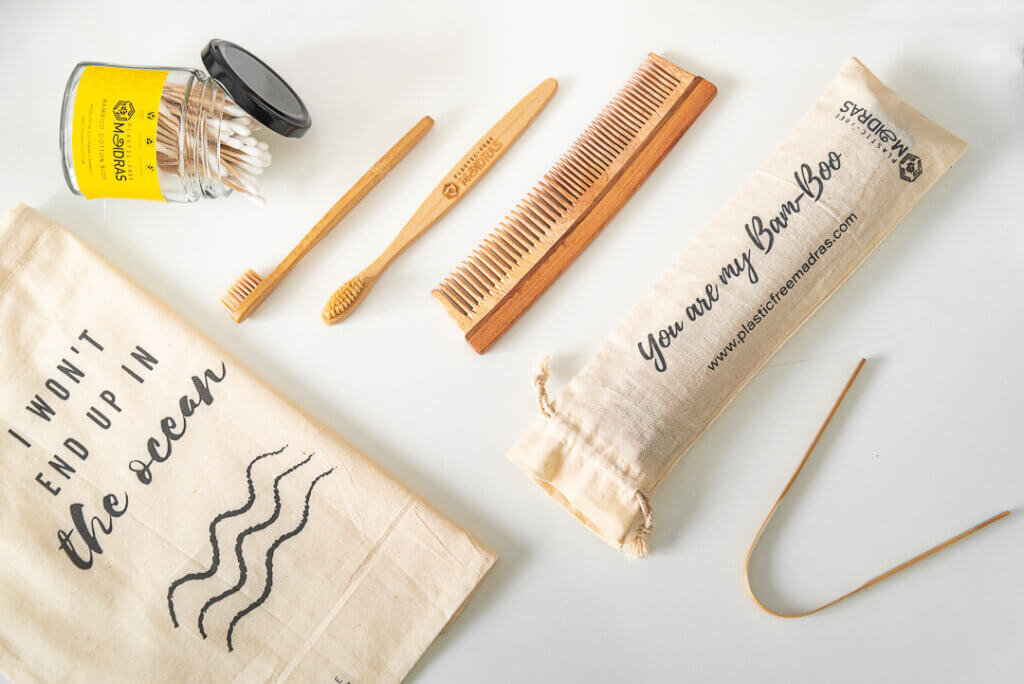
They often encountered people who wanted to make a difference but had no clue where they could buy single-use-plastic alternatives. To effectively convert people, they had to provide sustainable solutions.
“We were doing a lot of research between our shoots a couple of years before we started the venture,” Divya divulges. The food industry was one of the biggest generators of waste. Replacing these plastic utensils with their Areca counterparts was an easy solution. “We set up an all-women unit in Ambattur with a friend,” Pradeep says as he explains how the initiative also benefited the women employed at the unit.
At the brink of the second country-wide plastic ban in 2018, the entrepreneurs worked with around two hundred businesses, especially delivery partners. A couple of years later, they included more products under their brand and eventually built an e-commerce platform. Now, Plastic Free Madras sells about a hundred sustainable alternatives to everyday plastics for households and businesses.
“Currently, I am working on making homemade toothpaste,” Pradeep reveals with a grin. “The best part is you can eat it!” Divya adds, laughing. The duo constantly seeks thrill in experimenting with new products while networking with the growing strain of sustainable entrepreneurs that have emerged in the last few years.
“We want to support our friends—I say friends because they have become close friends!” Pradeep says, referring to the social entrepreneurs he and Divya had acquainted themselves with through the emerging pop-up culture in Chennai. “Most of them have unique products but don’t have an online store like us,” Pradeep continues as he introduces a new project that he’s working on—Eco Try.Be. It is not just any e-commerce platform where the product is the focus. “We want to highlight the people behind these products,” he says.
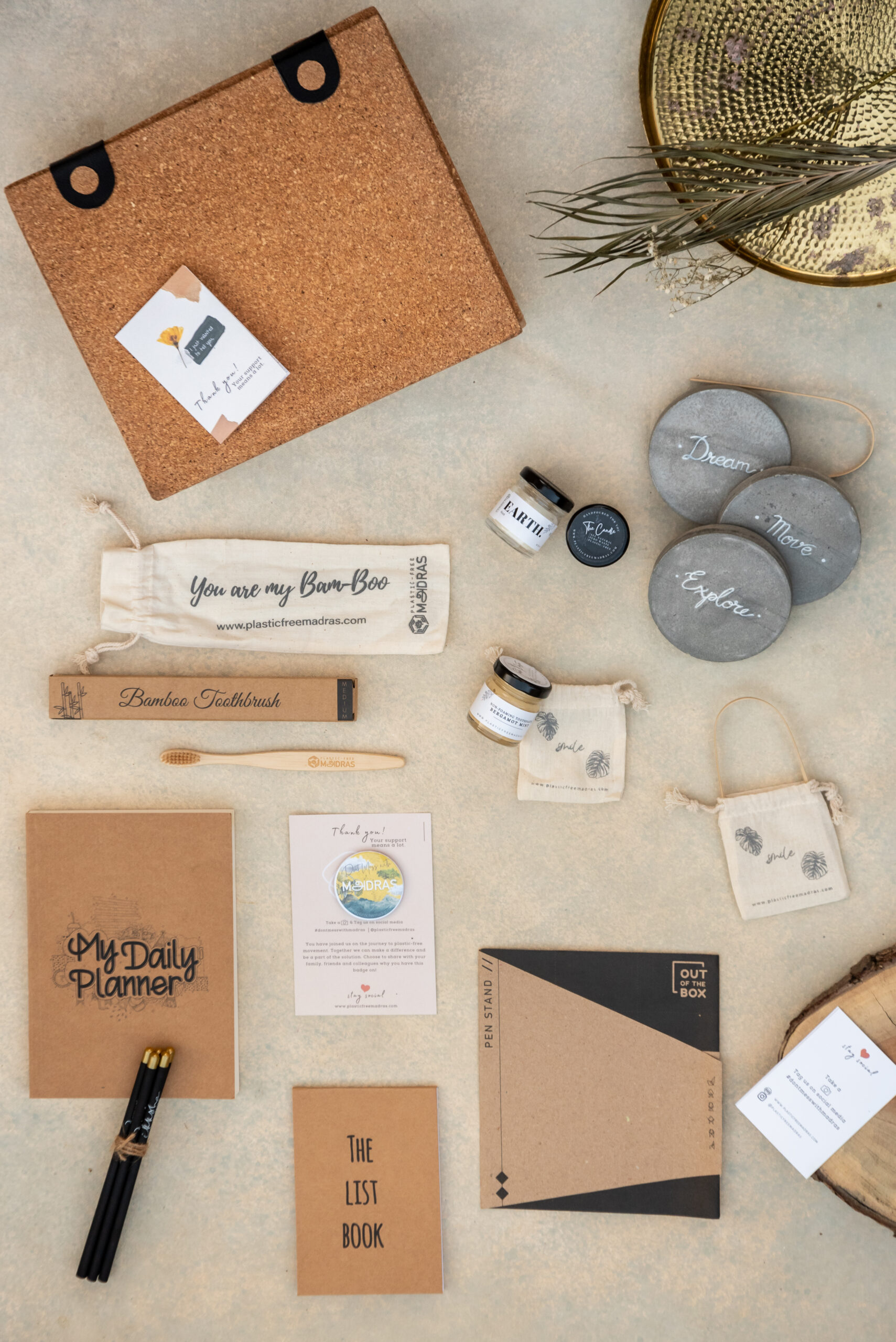
Although the initiative went through a reset during the covid pandemic—as sustainable products seemed more expensive than their plastic counterparts—the founders were unfazed. Joined by Dharun, an intern (who they believe the universe brought to them), they used the extra time to compile content and research ways to incorporate what they learnt into academic modules. After all, the younger generation would determine the future.
After a successful series of online sessions with school students, especially during the lockdown, they are determined to develop a curriculum about waste management for the younger generation. “We did not know about alternatives to plastic while growing up. It’s nice to see a more aware younger generation,” Divya says.

